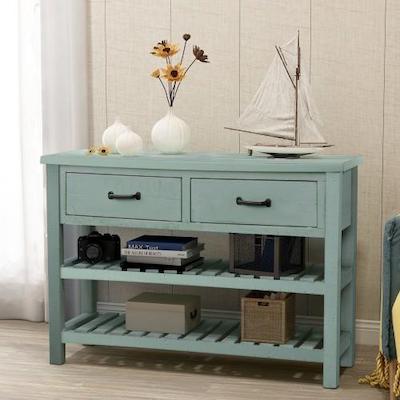The world of board games is vast and varied, offering something for everyone, from strategic simulations to whimsical adventures. Among these, language-based board games stand out for their unique ability to entertain while enhancing cognitive skills. Games like Scrabble, Boggle, and Bananagrams aren't just fun; they're powerful tools for improving vocabulary, spelling, and overall language proficiency. This article delves into the educational benefits of these games, highlighting how they can be used to boost language skills in players of all ages.
Understanding the Educational Value of Word Board Games
Word board games provide a playful environment where learning feels less like a chore and more like an exciting challenge. Unlike traditional classroom settings, these games encourage active participation and critical thinking. Players must strategize, adapt, and creatively use their linguistic resources to succeed. This approach fosters a deeper understanding and retention of language concepts.
Cognitive Benefits
Playing word games regularly can lead to significant cognitive improvements. These include enhanced memory, improved concentration, and heightened problem-solving abilities. The mental workout required to form words and plan moves keeps the brain active and engaged, which is beneficial for both children and adults.
Vocabulary Expansion
One of the most obvious benefits of word games is vocabulary expansion. Games like Scrabble and Bananagrams require players to constantly think of new words, prompting them to explore their existing vocabulary and discover new terms. This process is further enhanced when players look up unfamiliar words, turning the game into a dynamic learning experience.
Spelling Proficiency
Spelling is a fundamental aspect of language proficiency, and word games offer an engaging way to improve spelling skills. By visually and mentally constructing words, players reinforce correct spelling patterns. The competitive element of these games adds an extra layer of motivation, encouraging players to pay close attention to the accuracy of their word formations.
Top Language-Based Board Games and Their Benefits
Scrabble
Scrabble is perhaps the most well-known word board game, challenging players to form words from letter tiles on a grid-based board. Its strategic depth and reliance on vocabulary make it an excellent tool for language development. The game encourages players to think critically about word placement and point values, adding a layer of mathematical skill to the linguistic challenge.
Boggle
Boggle involves finding words in a grid of randomly arranged letters within a time limit. This game is particularly effective for improving quick thinking and pattern recognition. The fast-paced nature of Boggle encourages players to rapidly scan for potential words, enhancing their ability to spot letter combinations and improve their reaction time.
Bananagrams
Bananagrams is a fast-paced word game where players race to create their own crossword grids using a shared pool of letter tiles. This game promotes quick thinking and adaptability, as players must constantly rearrange their grids to incorporate new letters. Its engaging nature and lack of turn-taking make it a favorite for both casual and competitive players.
Other Notable Mentions
Beyond these classics, there are many other language-based board games worth exploring. These include games that focus on storytelling, word association, and creative writing, each offering unique ways to enhance language skills.
How to Incorporate Language Games into Educational Settings
Integrating language games into educational settings can transform learning from a passive activity into an interactive experience. Teachers can use these games to reinforce vocabulary lessons, improve spelling skills, and encourage creative writing. The competitive aspect of these games can also motivate students to participate and engage with the material.
Classroom Activities
Word games can be incorporated into various classroom activities. For example, teachers can organize Scrabble tournaments, use Boggle as a warm-up exercise, or assign Bananagrams as a group project. These activities not only enhance language skills but also foster teamwork and collaboration.
Homeschooling Resources
For homeschooling families, language games provide a flexible and engaging way to supplement traditional learning. Parents can use these games to create customized lesson plans that cater to their children's specific needs and interests. The interactive nature of these games makes learning fun and helps children retain information more effectively.
Tips for Maximizing Learning Through Word Board Games
To maximize the educational benefits of word board games, it's important to approach them with intention. Encourage players to look up unfamiliar words, discuss strategies, and reflect on their gameplay. By actively engaging with the game and its linguistic challenges, players can unlock its full potential for language development.
Encourage Word Exploration
When players encounter unfamiliar words, encourage them to look up their definitions and usage. This practice not only expands their vocabulary but also helps them understand the nuances of language. Keeping a vocabulary journal can further enhance this learning process.
Discuss Strategies
Encourage players to discuss their strategies and explain their word choices. This dialogue can help them think more critically about language and improve their strategic thinking skills. Sharing tips and tricks can also enhance the overall learning experience.
Reflect on Gameplay
After each game, take time to reflect on the gameplay. Discuss what worked well, what could have been done differently, and what new words were learned. This reflection can help players consolidate their knowledge and identify areas for improvement.
Conclusion
Language-based board games offer a fun and effective way to enhance vocabulary, spelling, and overall language proficiency. By incorporating these games into educational settings and approaching them with intention, players of all ages can unlock their full potential for language development. So, gather your friends and family, break out the board games, and embark on a lexical adventure that's both entertaining and educational. With regular play and mindful engagement, these games can transform the way we learn and appreciate the power of words.













